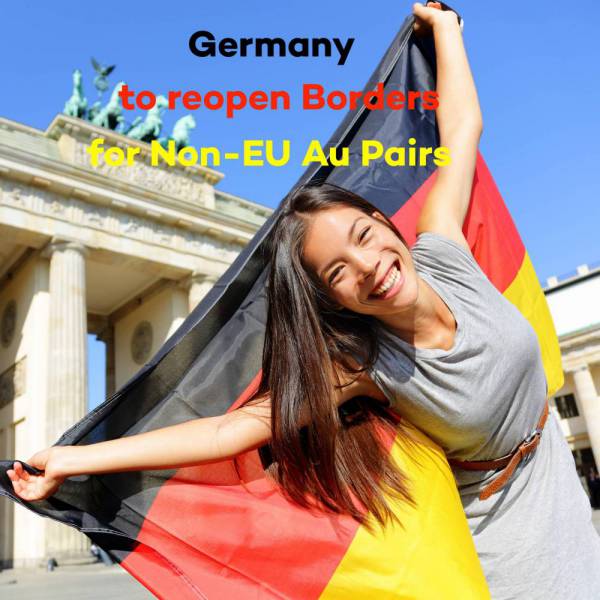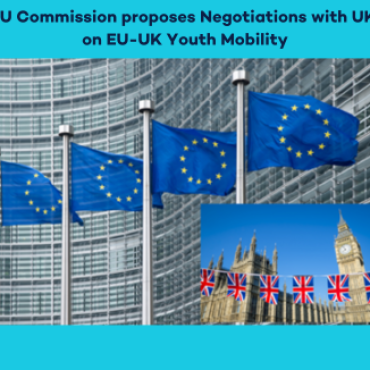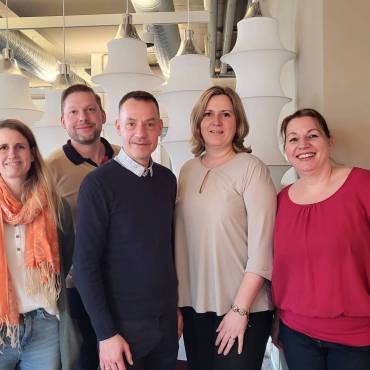Germany to reopen Borders for Non-EU Au Pairs
After letters to the EU and several ministries in Germany written by IAPA together with the German au pair associations Au Pair Society and Gütegemeinschaft Au Pair, we finally received the good news that from 18 November 2020 Germany has finally followed the EU Commission guidelines and will allow au pairs from non-EU countries to come to Germany again.
Here is the link to the official information and original text:
Au pairs, participants in voluntary service, trainees and participants in vocational training measures or language courses may also enter Germany. The planned length of stay must be at least six months. Proof of the reason for travel must be provided. Those attending vocational training or language courses must also present documentation from the institution providing the training measure or language course confirming that the person’s presence is necessary (in person and not only online) despite the current coronavirus situation.
Regardless of the criteria stated above, the decision on whether to permit entry is at the discretion of the officers conducting border checks.
Regardless of the criteria stated above, all travellers must follow the quarantine rules of the relevant federal state of Germany and the digital registration procedure for registration upon entry
What is important to know now?
- Au Pairs will have to stay at least 6 months (this has always been the case for non -EU au pairs)
- They will need proof of their au pair status:
-
- A valid Au Pair Visa for Germany,
- A valid and signed Au Pair contract with a German host family,
-
- Additional advice
-
- It may be useful for au pairs to, in advance, sign up to a German course with a language institute in Germany and to be able to show this confirmation to border control. The course in Germany has to be an in-person course, not online.
- It is also advised to have a negative PCR (Covid) test that isn´t older than 2 days. Their host family may also ask for this for their own peace of mind.
-
- All travellers to Germany need to be digitally registered https://www.einreiseanmeldung.de/#/ and carry a print out with them at all times of their journey.
What about au pairs from countries like the US, Israel, Canada?
Usually, these au pairs (USA, Japan, Canada, Australia, South Korea, New Zealand) could enter Germany on tourist status to then apply for the au pair visa in the country.
We asked the Ministry of the Interior, Building and Community specifically about these countries to determine whether they are on the positive list to enter and received the following answer today:
“For persons who (a) can enter Germany without a visa for a long-term stay according to § 41 (1) but (b) are not citizens of a country that is on the positive list, the following applies
If these persons do not apply for a visa for the immediate start of au-pair activities at the German consulate abroad but acquire their residence title in Germany, the reason for entry and the corresponding duration of stay must be proven upon entry. Thus, on presentation of the au-pair contract, the exemption from the entry restrictions can be determined at the entry control by officials at the border control.”
What does this mean?
They can either apply for an au pair visa at a German consulate in their home country, or they can travel without the visa, but need to be able to show proof of their future status as au pairs in Germany.
They, therefore, need to have the same documents as mentioned above except for the au pair visa.
What happens once an au pair is in Germany?
Au Pairs will have to self-quarantine (in the host family home) for a maximum of 10 days. If they can provide a negative PCR Test (not older than 48 hours) they may be released from quarantine earlier. The negative test usually has to be shown to a local health department after arrival.
Up to 01 December 2020, this test (to be taken within the first 10 days) is free in Germany. After 01 December some areas in Germany (Bavaria) will continue to offer it for free, others won´t.
Please note:
- Quarantine and other regulations in connection with the COVID-19 pandemic change almost weekly. It is therefore important to always inform yourself.
- Germany is a federal country and every “Bundesland” has slightly different rules. It is important for agencies, host families and the au pair to inform themselves about the quarantine rules and general regulations in the particular Bundesland where the host family lives.
Where to find relevant information:
Responsible health department search
Ministry of the Interior, Building and Community:
In addition, please check the websites of the German Embassies and Consulates abroad.




